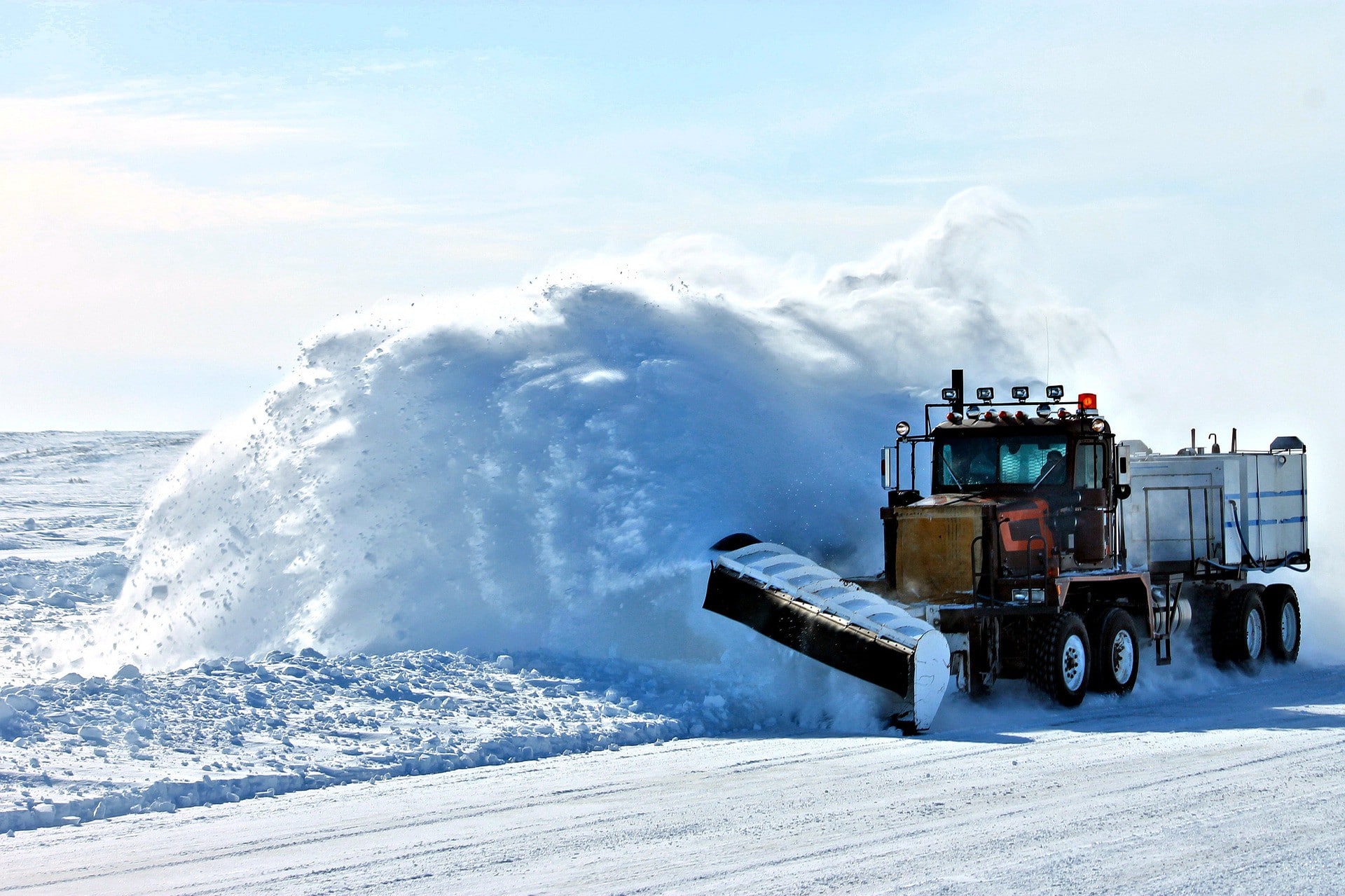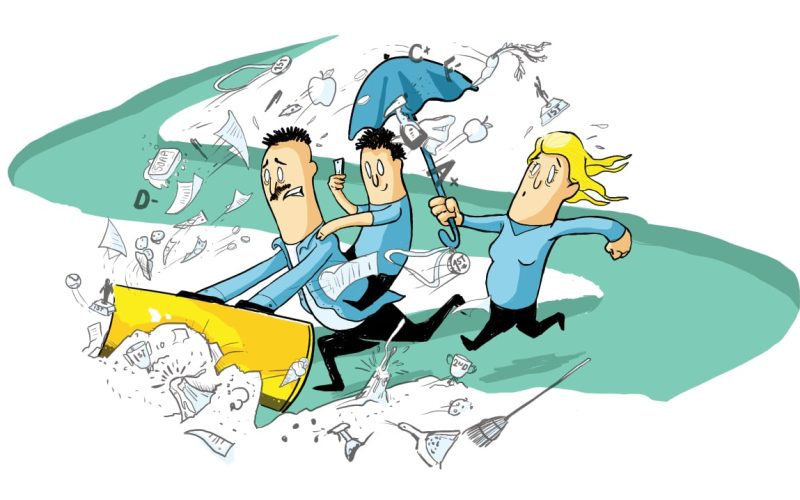Snowplow parenting is a style where the parents constantly force obstacles and challenges out of their kids’ paths.
They have their eye on their child’s future success, and anyone or anything that stands in their way has to be removed.
Like a snowplow clearing the snow off the street, a snowplow parent eliminates obstacles in their child’s path.
Parents who adopt snowplow parenting do not want their children to be in any pain or have any issues, so they interfere and solve the problem for them.
Snowplow parenting is similar to helicopter parenting, but there are differences. Parents who hover and micromanage their children out of fear are known as helicopter parents.
They watch every morsel that reaches their child’s body, every breath, and every scrap of homework. Since they fear the great wide world, they keep their children close to them.
On the other hand, snowplow parenting defines parents who over-focus on their children and overprotect them by fighting their battles for them.
Snowplow parenting, however, goes further and describes parents who overfocus and overprotect their kids by fighting their battles for them.
Signs of Snowplow Parenting
The following are signs that one is a snowplow parent:
You Are Highly Supportive
Snowplow parents always help their kids to finish schoolwork. They are ready to do it themselves to help the kid if necessary. Similarly, these parents support their kids in every aspect of life.
They are always overparenting. Snowplow kids may lack the rational approach and street intelligence skills to handle real-life situations.
You Are Very Nosy
When a parent constantly monitors every child’s activity and is eager to know everything the child does every time, that could be Snowplow parenting.
It’s okay for a parent to be concerned about her child’s activities, but being overly involved in the child’s life is a sign that you are a snowplow parent.
Always in a Hurry to Help
Snowplow parenting involves parents who are always in a rush to help their kids whenever they face difficulties, even the slightest.
Trying to always make things easier for your child is another sign that you might be snowplow parenting. Sometimes, allowing kids to stress over things helps them learn.
Effects of Snowplow Parenting

Snowplow parenting may seem favorable to children, as it mainly helps them live a stress-free and comfortable life, but there are other effects that Snowplow parenting can have on children.
Our experts weigh in on their most significant concerns regarding issues snowplow parenting can cause in kids.
Trouble Dealing With Frustration
Snowplow parenting breeds children who find it challenging to deal with frustration, as they are used to their parents always coming through when difficult times arise.
Children with highly directive parents are less comfortable with frustration and, therefore, less able to complete complex tasks independently.
Desirable challenges are an effective teaching tool, and children who can’t handle feeling upset or giving up at the first hint of difficulty are less likely to learn.
Poor Problem-solving Skills
Snowplow parenting results in poor problem-solving skills in children. This is because children brought up by snowplow parents are used to having all their problems solved by their parents.
A snowplow parent may persuade their child to take the lead in a play or join the most competitive soccer team.
They may also be able to assist their child in getting into a more prestigious college. However, by doing so, the snowplow parent denies their child the opportunity to learn how to solve problems and cope with conflict, all of which are important life skills.
Parents should remember that they can not always be by their kids. What happens when a problem arises and you, the parent, are not there?
With this in mind, parents should allow their kids to learn how to handle problems from a very young age. Guide them in acquiring different problem-solving skills, as this would help them do better in life.
Lack of Self-efficacy
Snowplow parenting can result in a lack of self-efficacy. Children who are never forced to face the repercussions of their decisions develop a lack of self-efficacy.
They are less likely to behave in the first place because they do not believe their decisions would result in substantive change.
When children see their parents do everything for them, even making excuses when they are wrong, they can lack confidence in their abilities and doubt themselves.
Parents are kids’ first and best teachers. So, as parents, we should be careful of what we teach our children from a young age.
Allowing kids to take actions by themselves, make decisions, and take responsibility for their mistakes would help them learn more about life and yield self-efficacy and confidence as they grow.
Dependence
Snowplow parenting may lead to children being highly dependent. Due to the style of parenting adopted in bringing them up, they may grow up believing they need someone to always make decisions for them, solve their problems, etc.
This is a very wrong mindset to inculcate in a child. Parents should raise their kids in a way that encourages them to trust their abilities and at least attempt to do things for themselves.
Reasons Why Snowplow Parenting is Not Advisable
Parents Need to Allow Their Kids to Fail So That They Can Overcome
Snowplow parenting prevents kids from failing as snowplow parents always find ways to help their kids fail. Though this might seem like a good thing, it is not. Failure enhances learning.
When a decision our children make backfires, it’s difficult to see them disappointed, hurt, or sad, but we must remember that mistakes help children grow to learn better.
If we pick up the blocks when they fall, correct their homework before handing it in, or rush home to get the book report they forgot, our children will miss out on the opportunity to learn from their mistakes and, more importantly, learn how to recover from them.
Parents Need to Say ‘No’ to Their Kids and Let Them Feel Their Feelings.
It’s difficult to look at your crying child and say “no,” knowing that a “yes” will prevent them from feeling bad, but we have to let them feel their feelings sometimes, even though it’s difficult.
Always saying “yes” to your kids would make them feel like they can always get what they want.
They would grow up with this conviction and go out into the world with this mentality. They need to learn how to handle rejection on time, as it is inevitable.
When our child breaks a toy or spills ice cream, running to find a replacement can temporarily relieve the pain.
However, allowing them to feel disappointment or anger and telling them that it’s okay to feel that way shows them that these are emotions they can resolve.
We Need to Congratulate Effort as Much as Results
Children must learn the value of perseverance. We must congratulate our children on completing difficult tasks and remind them they can do so.
Even if they fail to achieve the desired results, the fact that they tried should be celebrated. This encourages children to develop a mentality in which they understand that their abilities and talents aren’t predetermined and can improve with practice.
It gives them trust in their ability to conquer obstacles. When children are praised for not giving up, they’re more likely to keep going when times get tough.
Parents Need to Give Their Children Increasing Levels of Responsibility.
Children must be taught to take responsibility from a young age. Regarding household tasks like making the bed or filling the dishwasher, it often seems like doing it ourselves would be more effective than allowing a 4-year-old to try, but we must let them try.
Young children may take on minor responsibilities. It’s much easier to start when they’re very young than when they’re older.
Parents Need to Get Their Kids Thinking Proactively
Snowplow parenting does not encourage kids to think proactively because the parents do everything for them. Allowing kids to do things for themselves would encourage them to think.
It is not enough to tell our children what they should do; we must also teach them to think about what they should do.
For instance, when your child wakes up in the morning, instead of saying, ‘Go brush your teeth! ‘ you could ask, ‘What’s the first thing you do in the morning?’
When your kid is getting ready for school, you ask her to pick up all she needs to take to school, which would help her think of the things she needs.
The aim is to keep them focused on their list every morning before they internalize it and manage their morning tasks independently.
We should avoid telling our children about their commitments and ask them what comes next.
Conclusion
Although all good parents want their children to succeed, their decisions can also harm their children’s lives.
I would not advise any parent to adopt snowplow parenting, as it restricts children from revealing their true potential and maximizing their abilities.
Snowplow parenting prevents children from learning how to deal with obstacles and challenges early in life, which would affect them in the long run.
If parents do everything for their kids, it deprives them of the resiliency that comes from overcoming obstacles and the important life skills that come from picking themselves up after a fall and taking on more responsibilities.
And the parents also rob themselves of a future in which they are not parenting an adult.





